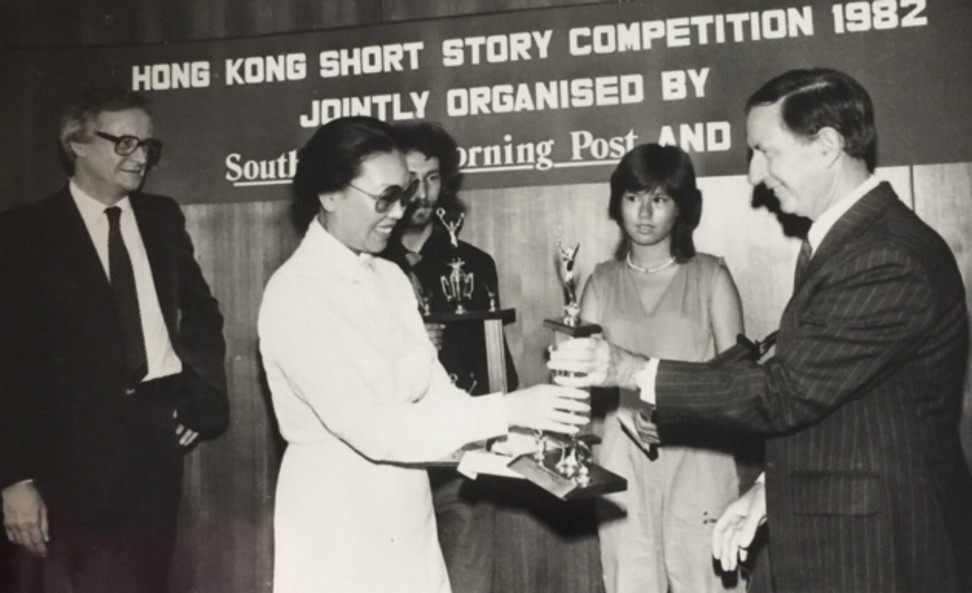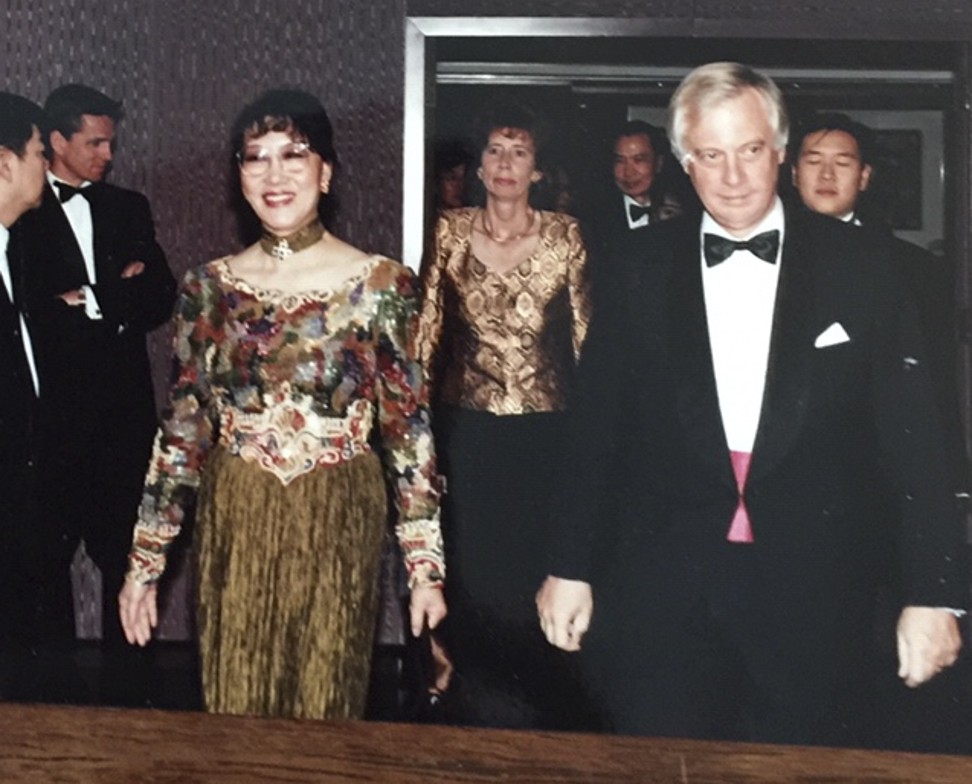
Murray MacLehose was my hero: retired Hong Kong civil servant Libby Wong on her part in city’s rise
- Shanghai-born author talks about her difficult childhood, working with Hong Kong governors MacLehose, Edward Youde, and David Wilson, and entering politics
- Having recently written a social history of Hong Kong, she says her heart goes out to young people. ‘I’ll be six feet under in 2047, but they will be around’
Left at the orphanage I was born in Shanghai, in 1937. When I was eight, my parents decided to come to Hong Kong. They didn’t want to bring us kids with them, so they parked my younger brother and sister and I in an orphanage in Hunan run by my auntie. The husband of my auntie had been a Kuomintang general. He died during the war. As the couple hadn’t had any children, my auntie adopted my brother. We suffered at the orphanage because during this period, after the war, there was very little food.
After 2½ years at the orphanage, my sister and I joined our parents in Hong Kong. My father was working as a teacher at St Stephen’s College (for boys) in Stanley. The headmaster, Canon Martin, took my sister and I under his wing. We were very thin and had head lice. Canon Martin took us to the clinic and had us tidied up, deloused. He taught me my first sentence in English: “This is a flower.” Later, he arranged with the headmistress of Diocesan Girls’ School that I sit the admissions exam. I passed and was accepted. I did well at school and won a scholarship to Hong Kong University to study English literature.
Honest Eddie I met the man who became my husband – Edwin Wong – at a Christmas party. He’s a third-generation New Zealander. He studied architecture and after graduating from Auckland University worked in England before applying to the Hong Kong government for a job. When I met him, he was building Queen Elizabeth Hospital. After our first meeting, he asked to see me again, but I told him I couldn’t as I was sitting my final exams. He sent me flowers and a poem every Monday. I have a weakness for poems, however bad.
After my final exam, I contacted him and said, “We can meet now.” On our third meeting, on the beach at Shek O, he proposed. I said, “Don’t propose to me, ask my father.” Which he did. My father asked what made him suitable to be my husband. He said he didn’t come from a good background, but he was educated and could work and provide for me. My father later said to me, “That Eddie is a good chap because he didn’t bluff, he was honest about his background.” It all happened at lightning speed, in 1959. We got engaged in May and married in August.

In the family way I joined the Hong Kong Productivity Council as a public relations person. It wasn’t long before I got pregnant with our second child (in 1969). I said to my boss, “I’m in the family way.” He replied, “Well, this is not the kind of productivity we expected.” So, I said that I’d better quit. I saw an ad in the newspaper that the government was recruiting admin officers. I asked my husband what an admin officer did, and he said, “They are the blue-eyed people, they get promoted jolly fast.” So I applied.
I sat a written exam for the job while I was pregnant and I was at Queen Mary Hospital, having just given birth to our son, when I got the job offer. I was sent to be the assistant to George Rowe, director of the Social Welfare Department. From there I was posted to the Finance Branch to work with Philip Haddon-Cave, an Australian statistician.
Murray who? When Haddon-Cave was the financial secretary, Murray MacLehose was the governor; he became my hero, he was the longest-serving governor and made Hong Kong what it is today. He introduced public assistance, the Consumer Council, new towns, country parks and the ICAC (Independent Commission Against Corruption). He wanted everyone in Hong Kong to feel like they belonged and changed the mood of the city. He was able to reach down and to the frontline staff.
My first direct encounter with him was in 1979, when I was posted to the Music Office. He called me and said, “Murray here.” I said, “Murray who?” I thought it was a colleague playing a prank on me. He said, “This is Murray MacLehose, your governor.” We established a kind of friendship. When I was an admin officer with the Music Office, he used to invite me to Government House with the musicians. The young musicians used to stand on tiptoe to shake his hand.
I chaired a committee on the future of music in Hong Kong and wrote the report recommending the setting up of a tertiary institute, which is now the Academy for Performing Arts, supported by the governor, who found the money.

Not long after that, we learned he’d died of a heart attack at the British embassy in Beijing (on December 5, 1986). I joined the funeral march from Government House to St John’s Cathedral. People were lining the streets, weeping. The next governor was David Wilson. In 1990, I became the secretary for health and welfare under him. I was tasked with setting up the Hospital Authority, which I did, ably assisted by my deputy Helen Lai.
A new chapter I took early retirement in 1994. I ran for election and got the highest number of votes. I became a Legislative Council member. Meanwhile, I was writing a book, Thanks for the Memories: Hong Kong 1997. When it was published in 1997, I gave each living governor a copy. I quit Hong Kong that year to become a writer. My husband had retired and as his mahjong friends are all in Hong Kong he decided to stay, and I went to New Zealand because I wanted to start a new career. We saw each other twice a year. When my daughter moved to Sydney with her husband, I sold the house in Auckland and moved to Australia with them.
In 2006, I released Rainbow City, a novel about Hong Kong, which was a huge success. My second novel, Flower Mountain (2007), was not a success. I came back to Hong Kong in 2011, because my husband had had several strokes. I plan to stay here – I think this is where I will die. I have a new book out, Return, which is a social history of Hong Kong. The English edition was published last year, and the Chinese version will be out next month. One of the things I always write about is young people because my heart goes out to them. I’ll be six feet under in 2047, but they will be around.

